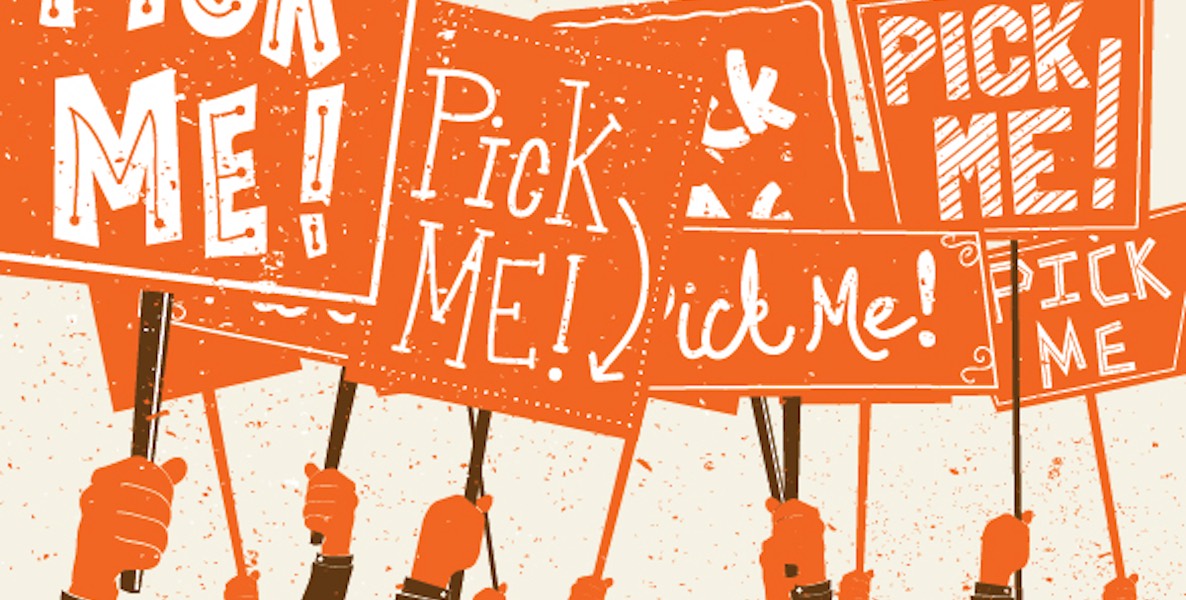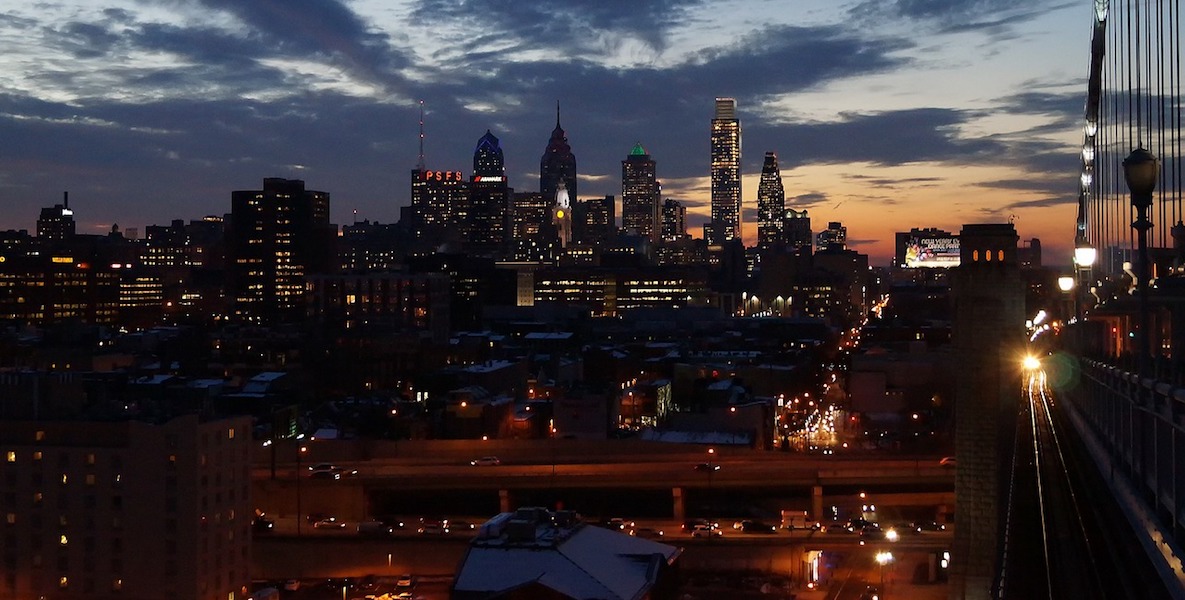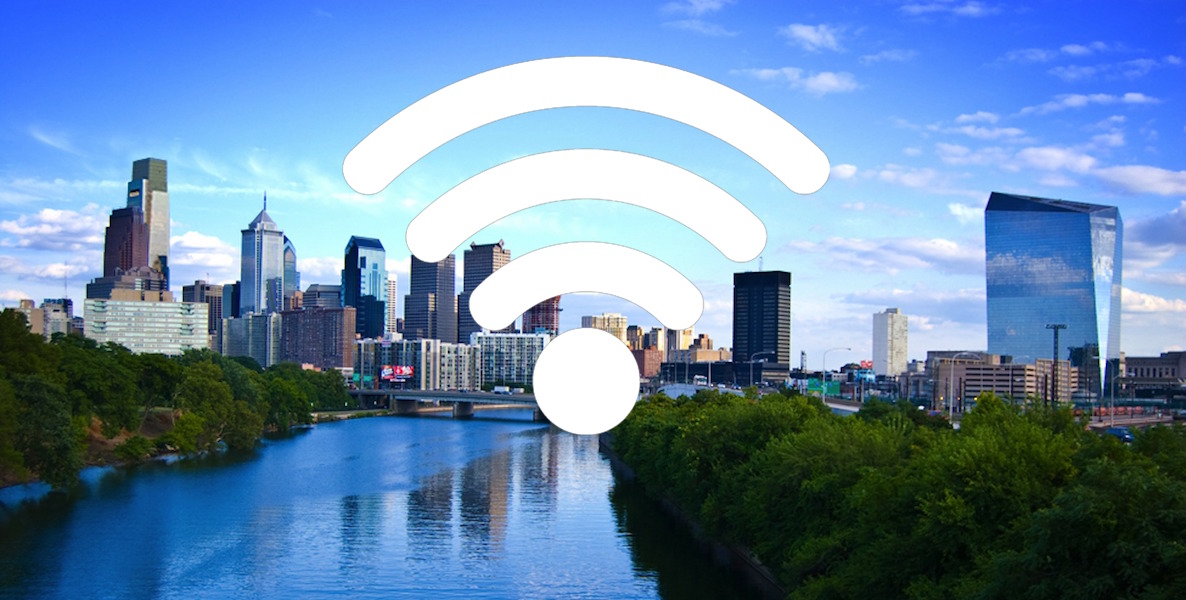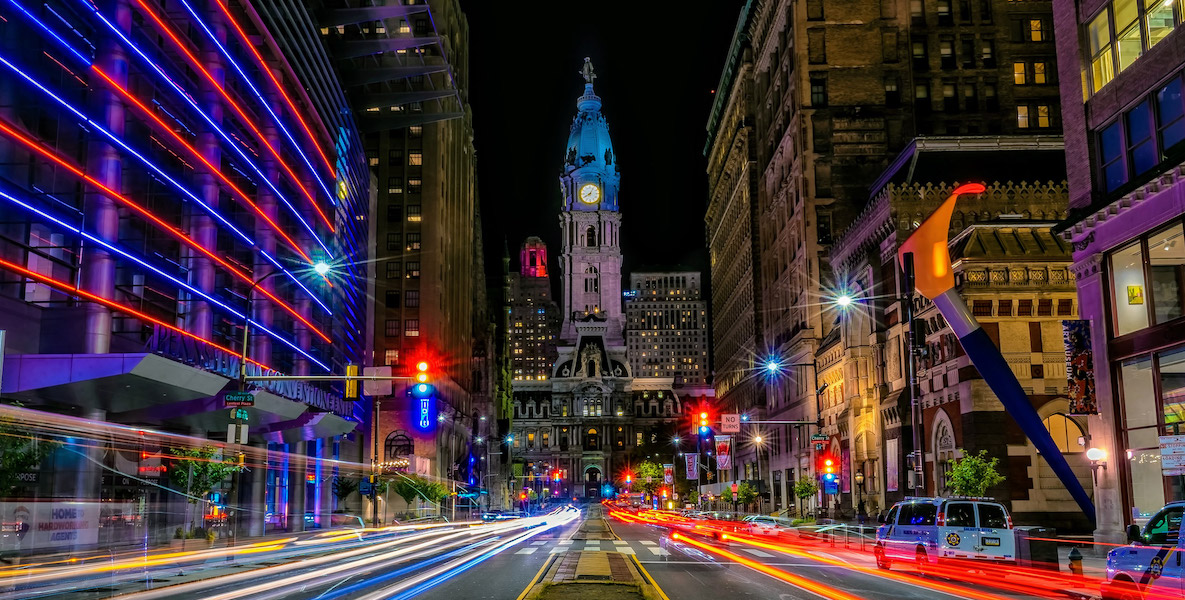Imagine, if you will, a Penns Landing development plan that looks like this: a community of energy-efficient mixed-income housing, 40 percent below market rate, made from sustainable (and attractive) mass timber manufactured nearby; connected by bike and walking lanes, light rail and underground delivery tunnels, to reduce congestion and pollution; with 44,000 new jobs in the neighborhood.
Spectacular, right? Too bad we’re not getting that.
These are some of the elements that make up Sidewalk Lab’s vision for Toronto’s Quayside, a development that Toronto and Sidewalk—owned by Alphabet, the parent company of Google—have started to plan on 12 acres of underutilized waterfront land. The plan—which has its critics, for very good reason—offers a utopian view of a “new approach for inclusive growth,” and is a blueprint for how a tech company, given the chance, would build a smart city from the ground up.
It’s breathtaking in scope; it’s bold and risky. It’s not Philadelphia.
![]() Instead, nearly a year after releasing its Smart City Roadmap, the City’s Office of Information Technology last month announced its first public effort: A tech-based “Call for Solutions” to Philly’s trash and waste problem. The so-called “pitch and pilot” program will grant $34,000 to an organization to test an idea that can help the city achieve its goal of eliminating the use of landfills and polluting incinerators by 2035. OIT will take proposals until January 16, and work with the winner to implement, manage and track the project over the next several months. (Details of the call for solutions are here.)
Instead, nearly a year after releasing its Smart City Roadmap, the City’s Office of Information Technology last month announced its first public effort: A tech-based “Call for Solutions” to Philly’s trash and waste problem. The so-called “pitch and pilot” program will grant $34,000 to an organization to test an idea that can help the city achieve its goal of eliminating the use of landfills and polluting incinerators by 2035. OIT will take proposals until January 16, and work with the winner to implement, manage and track the project over the next several months. (Details of the call for solutions are here.)
It’s a small—minuscule, really—foray into the world of Smart Cities, an overarching term that generally means using civic-minded technology to make living in cities easier, more efficient and more sustainable. Smart City Director Emily Yates says OIT plans to release another call for solutions to another problem in January, and then—hopefully—quarterly after that. Still, that’s a snail’s pace compared to what Toronto is proposing, or even to other less ambitious cities in the U.S. and the world, which have embraced technology to create change (sometimes with mixed results) in their urban environments.
Both Yates—who’s held the post for two months—and former Smart City Director Ellen Hwang, say that’s intentional: After various pilots and start-and-stop attempts to launch civic tech, the City deliberately hit pause in 2017, and took two years—and a $200,000 grant—to develop its Roadmap. It’s also a matter of priority: After Mayor Nutter’s tech- and data-forward administration, Mayor Kenney pulled way back on civic tech, to the early dismay of many Philly technologists.
“We want to take the urban civic challenges the city is facing, and instead of having a technologist approaching us with their solutions to problems they identified, we wanted to tell them our problems and have them come up with a solution,” Yates says.
The slow pace of Philly’s civic tech innovation has, perhaps incidentally, coincided with a new wave of thinking around Smart Cities, one that calls for a more community-centered approach to problem-solving. The concept of Smart Cities was created about a decade ago by commercial technologists offering solutions to problems they identified based on innovations they had created. In the early days, this allowed for cities to be tech-forward without much expense: Often, companies offered the technology for free, using cities as testing grounds, or selling ad space to pay for their solutions.
Forward-thinking cities like Barcelona, London and Boston, capitalized on this, ![]() embedding the so-called “Internet of Things” into city fixtures like smart light poles, parking spots and bus kiosks, hoping to make life easier for residents and city government more efficient. And for many of these cities, the success has been huge: Barcelona has reportedly saved €75 million of city money and created 47,000 new smart technology jobs (which alone would be a huge benefit to Philadelphia). The industry, meanwhile, is booming: One study last spring estimated the market for smart city technology will be worth $238 billion in the next five years.
embedding the so-called “Internet of Things” into city fixtures like smart light poles, parking spots and bus kiosks, hoping to make life easier for residents and city government more efficient. And for many of these cities, the success has been huge: Barcelona has reportedly saved €75 million of city money and created 47,000 new smart technology jobs (which alone would be a huge benefit to Philadelphia). The industry, meanwhile, is booming: One study last spring estimated the market for smart city technology will be worth $238 billion in the next five years.
There are hazards to being first, as Toronto is discovering with its Quayside project: The Globe and Mail last year reported on a secret Sidewalk Labs book that laid out an alarming scenario for how the company thought about using its civic tech to further its bottom line, including issuing its own property taxes, controlling some public services and using personal data to sell ads, or to give people points that would allow them access to certain places. The company walked back from those ideas, and the agreement Toronto eventually made with Sidewalk Labs has addressed many of those concerns. Still, Quayside will be a guinea pig that could prove incredibly lucrative for Google, whether it is fully successful or not.
The slow pace of Philly’s civic tech innovation has, perhaps incidentally, coincided with a new wave of thinking around Smart Cities, one that calls for a more community-centered approach to problem-solving.
Philadelphia has stuttered in its attempts to become a Smart City over the last 15 years: From the failed attempt at citywide broadband in 2004; to Nutter’s now-shuttered Office of New Urban Mechanics, generally considered a boon to Philly; to the city’s ambitious 2016 projects with Citymart, an international organization with the aim of changing the way cities work with companies to solve civic problems; to a subsequent call for Smart City solutions in 2017 that proved unwieldy.
That last effort, a broad call that brought in more than 100 ideas, led OIT to take a step back and secure a $200,000 Knight Foundation grant to bring together city departments to create a set of principles to guide the City as it decides what problems to solve and who will solve them: Locally-inspired (so, specific to Philly); innovative; equitable for all Philadelphians; and collaborative among city departments, the private sector and communities. It sounds good, on paper, but the real test will be in how it addresses the particulars of Philly, what makes it different than Toronto, or Barcelona: Our 25 percent poverty rate—and what that means about people being left behind—hovers over everything. Can we afford to spend money and resources on exciting innovations—smart parking spots!—when so many residents can barely afford to pay their rent?
“The thoughtful approach is the way to do this,” says Dawn McDougall, former director of civic hacking group Code for Philly, said last year. “When someone comes in with a problem and finds a specific fix, often you’re not making the most systemic change needed. What the city needs is systemic transformation.”
![]() Is the Roadmap going to offer that? It’s not clear from the efforts so far. Yates came to Philly two months ago from Charlotte, North Carolina, after reading the Roadmap and being drawn to its principles of a human- and government-centered approach to civic tech that differs from what programmer-turned-tech journalist Meredith Broussard terms “technochauvinism”—the idea that tech problems and solutions are inherently superior to human problems and solutions. “We want to take the urban civic challenges the city is facing, and instead of having a technologist approaching us with their solutions to problems they identified, we wanted to tell them our problems and have them come up with a solution,” Yates says.
Is the Roadmap going to offer that? It’s not clear from the efforts so far. Yates came to Philly two months ago from Charlotte, North Carolina, after reading the Roadmap and being drawn to its principles of a human- and government-centered approach to civic tech that differs from what programmer-turned-tech journalist Meredith Broussard terms “technochauvinism”—the idea that tech problems and solutions are inherently superior to human problems and solutions. “We want to take the urban civic challenges the city is facing, and instead of having a technologist approaching us with their solutions to problems they identified, we wanted to tell them our problems and have them come up with a solution,” Yates says.
Part of Yates’ mandate is recruiting local universities to help implement tech solutions; already, she says, several have reached out to her to see how they can help. This first Call for Solutions came out of a 12-member Pitch & Pilot working group made up of city workers, community members and academics, who decided on waste disposal because it fit a set of criteria: It aligns with Mayor Kenney’s priorities, and is something residents care about; could benefit from outside input, from both the community and professionals; and it is measurable.
At $34,000, Yates acknowledges the pilot is inevitably going to be very limited. That money, coming from OIT, falls under the $35,000 limit before the legal requirement to issue a formal Request for Proposal, a much more complicated process that often leaves smaller local companies at a disadvantage. (Voters approved a ballot measure that will raise that threshold to $75,000 for out of town companies and $100,000 for local organizations starting July 1, 2020.)
The purse is intended to be enough for a test project, with project management, community engagement and other support—including evaluation—provided by the Streets Department and OIT. If successful, the City will then determine if and how to expand the project, where the funds will come from and other details. So far, anyway, that’s the level of risk the administration seems ready to take. “We’re going to put forward the money, project manage the pilot and collect data to see if it’s successful or not,” Yates says. “If it fails, we learn from that, too.”
Header photo: J.Fusco, for Visit Philly






